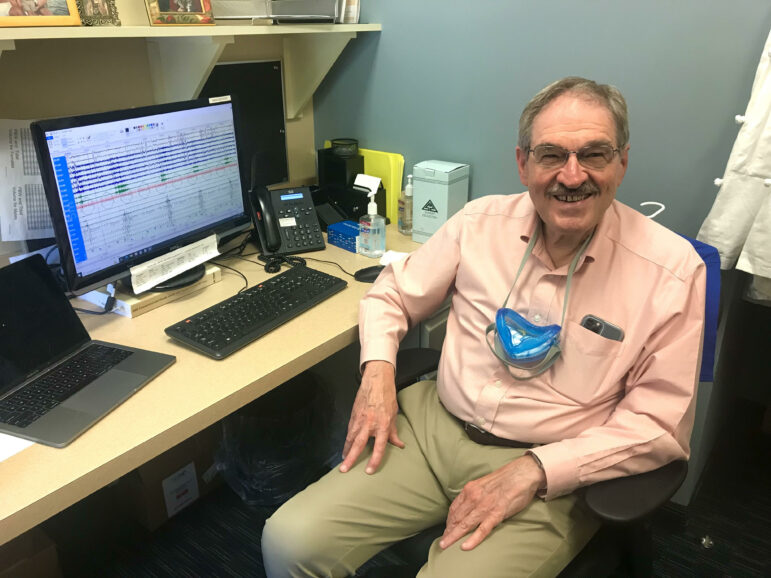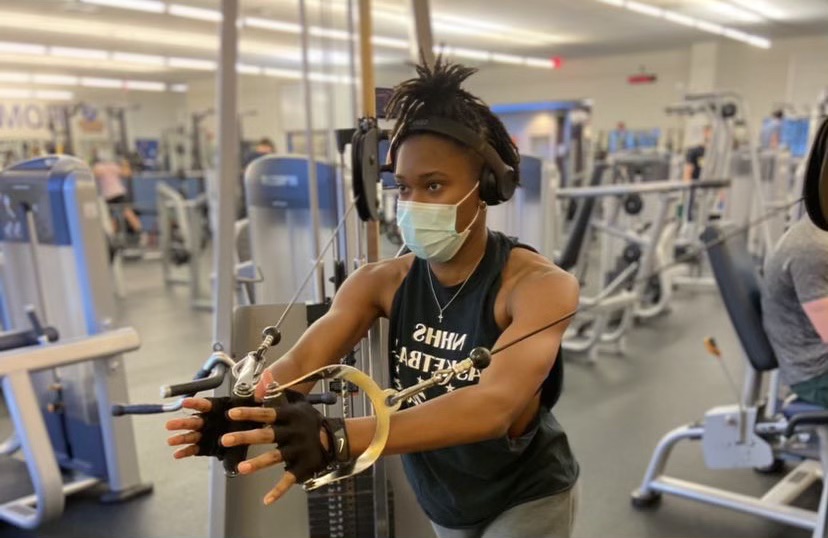Sleep professionals say they are treating young adults stuck in endless cycles of poor sleep habits developed as teenagers. The wake-up call to seek help comes when life changes around them and their poor sleep habits impact most aspects of their life, including their mood and productivity at work or school.
“If you don’t sleep the right amount or are too sleepy, you usually become cranky, irritable. So, sleep disorders really impact every factor of a person’s life,” said Meir Kryger, MD, Yale professor emeritus of medicine and editor of Principles and Practice of Sleep Medicine who retired in June from clinical care after 51 years.
Even in the classroom, Kryger lectured his students on the importance of good sleep habits. He said he finds that as students try to keep up with their courses, they spend the night studying, creating a trend of sleep deprivation. Getting proper rest at night improves productivity and attention in class, Kryger said.
Lack of sleep among college students is common. According to Medical News Today, “20% of students stay up all night at least once a month and 35% stay up until 3 a.m. once a week.”
Marcy Sanders, PhD, an occupational therapy professor at Quinnipiac University, is studying the sleep habits of college students. Sanders found that three main factors are causing sleep-deprived college students.
The first is their circadian rhythm being interrupted, meaning their bodies are not in sync with the 24-hour biological clock, Sanders said. Staying up late at night and working in front of a bright computer screen alerts the body, instead of relaxing it.
Secondly, arousal or excitement can prevent a student from sleeping. Late-night social interactions and school stress typical in college students’ day-to-day life inhibit them from falling asleep.
Lastly, students’ homeostatic system, the body’s self-regulating process, is impaired by not practicing a proper night routine. She says it is important for students to take time to destress before sleeping in a cool, dark room.
“It is not always the duration [of sleep], but the quality,” Sanders said about the importance of a night routine for a good night’s rest.
For students who have difficulty sleeping, Sanders advises light exposure in the morning, such as opening curtains or making outside part of their morning routine. Exposing yourself to light alerts your brain that it is the start of your day and helps to regulate your circadian rhythm, causing you to feel sleepier at night, she said.
Zoi Burns, a rising junior at the University of Massachusetts Dartmouth, is one of many college students struggling to reach the recommended eight hours or more of sleep. During the school year, Burns keeps busy with her political science major, two minors, student government position, and on-campus job.
“For students that are very involved on campus, it becomes like a full-time job. It’s hard to balance that with schoolwork and somewhat of a social life,” said Burns, who is from North Haven.

Lucey Photo.
Dr. Meir Kryger said that sleep disorders impact every factor of a person’s life.
She uses the gym and a night routine, including a thorough skin-care regime, to relax before bed. With student activities and schoolwork deadlines, falling asleep before midnight is rare. Burns says she typically goes to sleep between 1 and 3 a.m.
Finding a balance between school, a job, and extracurriculars is a conflict students inherit from their high school years. According to Kryger, the main reason adolescents form bad sleeping habits is the early school start time. Kryger said he believes schools starting before 8 a.m. do not give students adequate rest when factoring in getting ready for school and the morning commute.
According to the Centers for Disease Control and Prevention, teenagers should sleep eight to 10 hours a night, but 68.4% report sleeping seven hours or less. High schoolers’ inability to get proper rest is a common topic in the sleep medicine field. For years, Kryger has been an advocate for delaying school start times. He said early alarms are cutting into valuable sleep time for adolescents.
Early start times are common across the United States, which is why Kryger thinks that “America is a very sleep-deprived society.” Teenagers’ poor sleeping habits will trickle into their later education and work years.
In Connecticut, the average start time for high school is 7:39 a.m. Connecticut is among four states with an average high school start time of 7:45 a.m., including Massachusetts, New Hampshire and Louisiana, according to a 2020 Connecticut By The Numbers report.
Kryger and the American Academy of Sleep Medicine say 8:30 a.m. is the gold standard for school start times.
Some school districts in Connecticut have delayed their first bell. The town of Wilton moved its middle and high school start time from 7:35 a.m. to 8:15 a.m. In 2017, Greenwich moved its beginning time to 8:30 a.m. Many other towns in Connecticut have discussed delaying start times in their school districts.
California was the first state to mandate later start times for public high and middle school students. The law states that high school students start no earlier than 8:30 a.m. and that middle school classes begin no earlier than 8 a.m. The law, approved in 2019, took effect July 1, 2022.
 Colleen Lucey, a junior at the University of Connecticut, writes about the most pressing health, wellness and safety issues affecting people ages 18-40. To reach her, email colleenlucey15@gmail.com.
Colleen Lucey, a junior at the University of Connecticut, writes about the most pressing health, wellness and safety issues affecting people ages 18-40. To reach her, email colleenlucey15@gmail.com.
